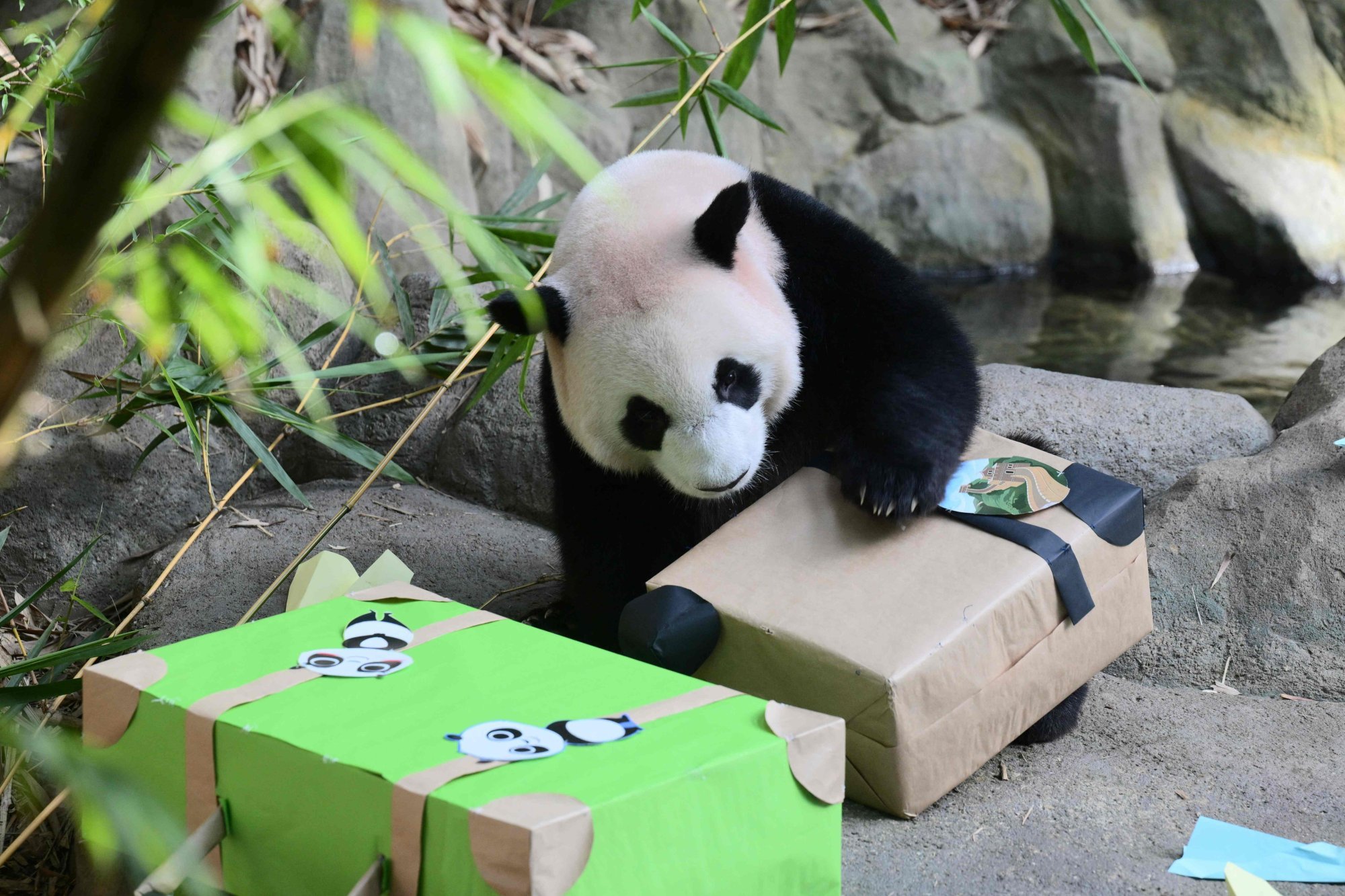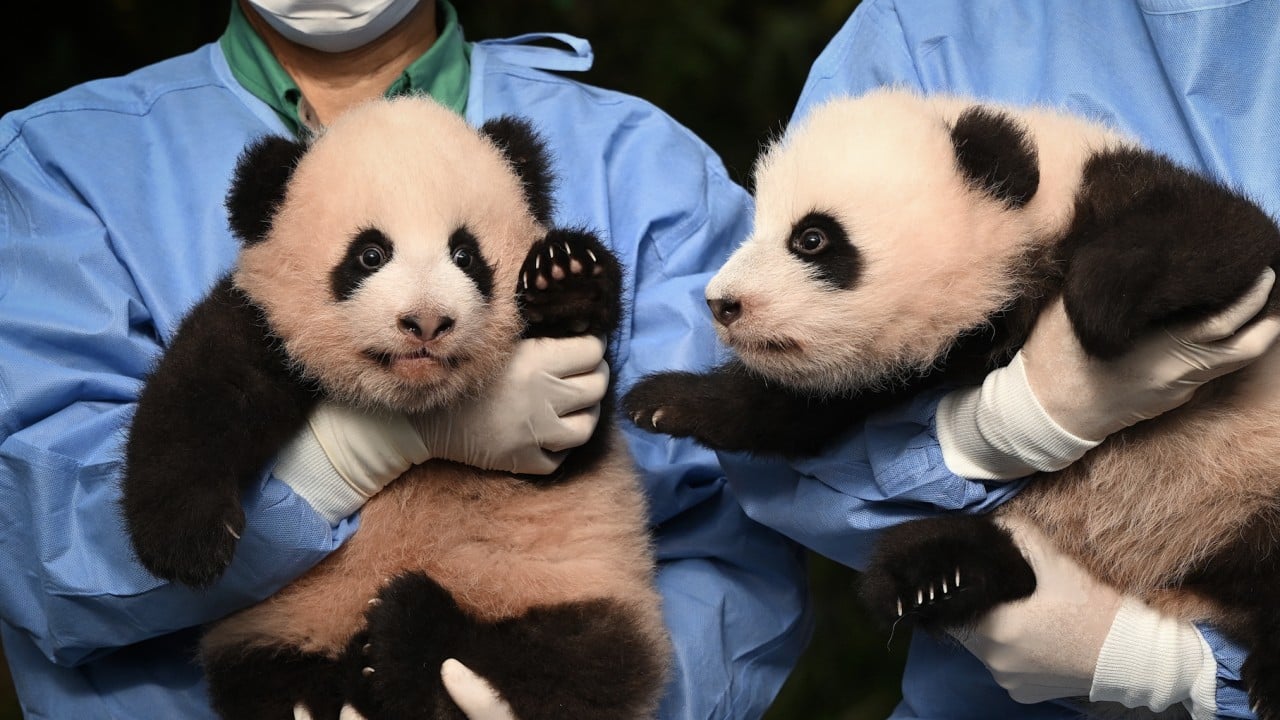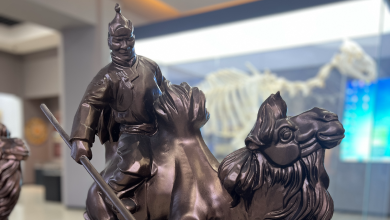Singapore-born panda Le Le bids farewell to city state before trip to China
[ad_1]
Le Le, the first panda to be born in the city state, made his final public appearance at the River Wonders wildlife park before a month-long quarantine ahead of his departure.
Dozens of visitors lined up to see Le Le amble around his enclosure, eating bamboo and carrot sticks that keepers had hidden under paper planes and inside cardboard suitcases.
‘Envoys of friendship’: Xi Jinping hints that new pandas are on the way to US
‘Envoys of friendship’: Xi Jinping hints that new pandas are on the way to US
Among them was Lucilla Teoh, a self-described “panda-holic”, who wore a T-shirt and hat decorated with panda motifs and sparkly panda earrings for the special occasion.
The 61-year-old said she considers herself Le Le’s “grand-aunty” as she had watched him grow from a tiny baby into a 73kg (161-pound) cub.
“Obviously it’s bittersweet, I wish he could stay longer,” Teoh said.
“But I also feel he has a part to play in panda conservation, that it is important for him to go back to China, grow up a bit, and then hopefully he gets to be a panda ambassador and come out like his parents.”

Lydia Robangsa, who brought her nine-year-old daughter Dahlia to see Le Le for the last time, said they felt “a bit sad” to say goodbye to the panda.
Le Le was born in 2021 via artificial insemination after his parents, Jia Jia and Kai Kai, failed to mate naturally.
The pair, now aged 15 and 16 respectively, arrived in Singapore in 2012 on loan from China.
Under the arrangement, their offspring were to be sent to China after reaching independence to join the country’s panda breeding programme.
Further complicating matters, the window for conception is small since female pandas are in heat only once a year, for about 24 to 48 hours.
‘Sad to see them go’: UK’s only pandas return to China after 12 years
‘Sad to see them go’: UK’s only pandas return to China after 12 years
There are an estimated 1,860 giant pandas left in the wild, according to environmental group WWF, and about 600 in captivity in panda centres, zoos and wildlife parks worldwide.
[ad_2]
Source link






